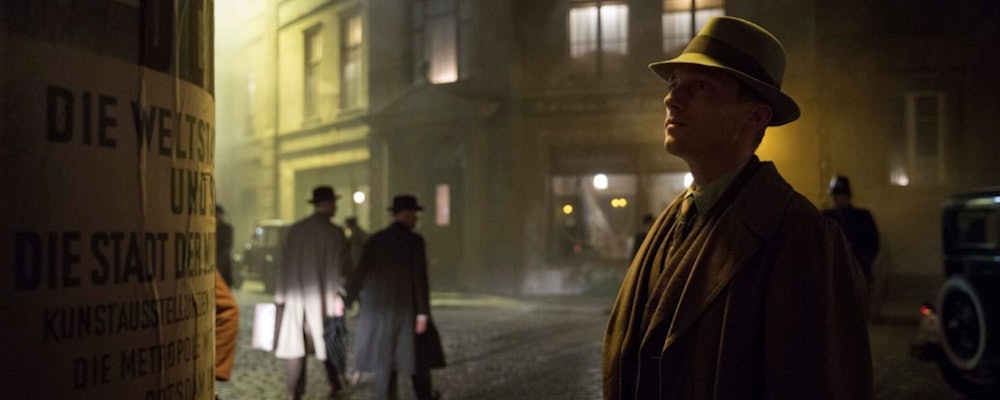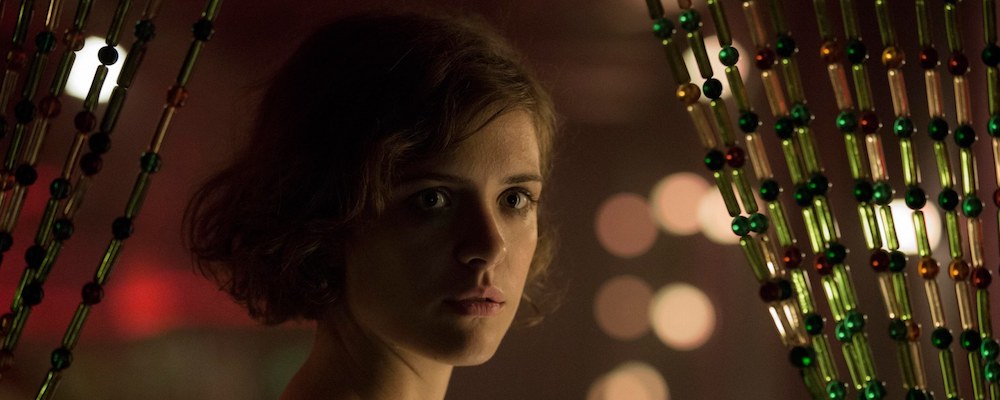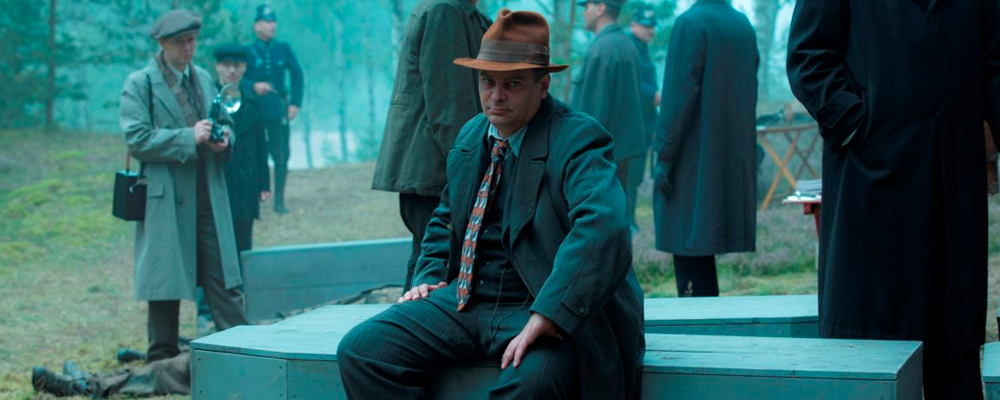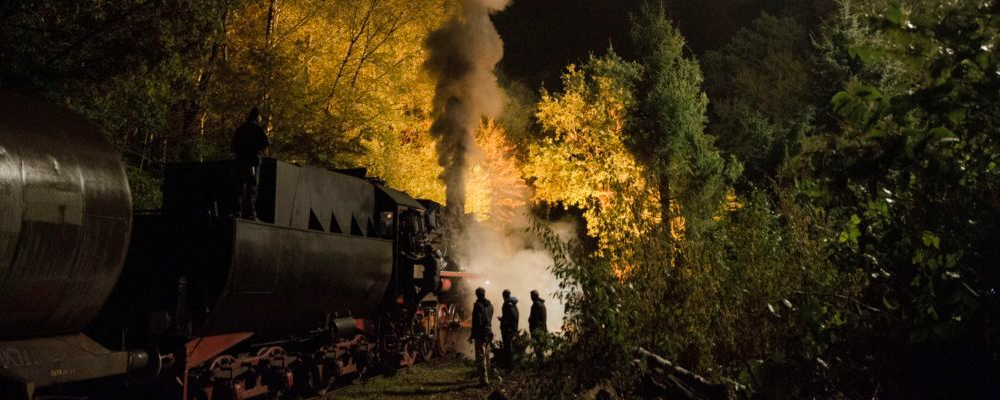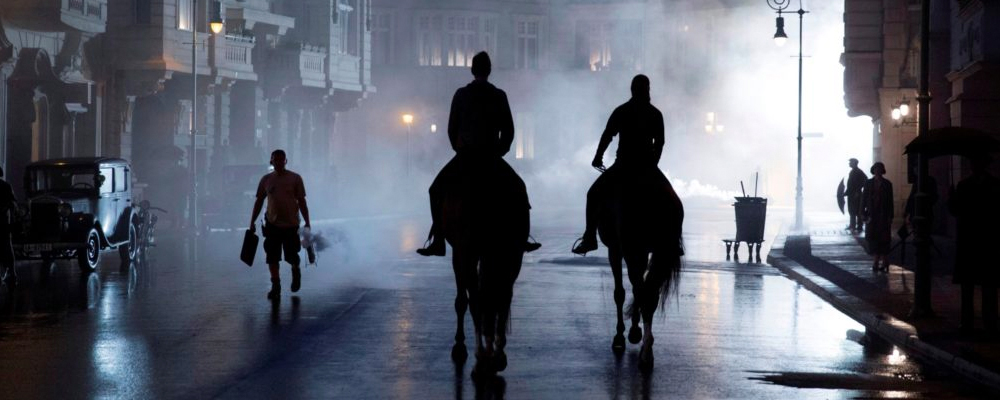‘Babylon Berlin’ Is Beautifully Decadent Noir
Alci Rengifo
“Babylon Berlin” makes its Netflix debut as an exhilarating, intriguing visual feast that combines classic noir with history. It’s the latest, big European series to appear on the streaming service following the massive success of “The Crown.” But this show is darker, grittier and with themes so relevant to current predicaments that it is no wonder it’s been the biggest TV show in Europe before being picked up for the U.S. market. Produced and co-created by Tom Tykwer, director of visual cult hits like “Run Lola Run,” “Perfume” and “Cloud Atlas” (with the Wachowskis), “Babylon Berlin” is a unique take on that period in German history when political and social chaos followed World War I, paving the way for the rise of Nazism. Loosely based on an international bestselling novel by Volker Kutscher, it never feels like a dry period piece, it is both visually seductive and endlessly entertaining as a detective story.
It is 1929 Berlin. The economy is in tatters, the scars of World War I linger and political upheaval is in the air. Volker Bruch plays Gereon Rath, a detective in the Berlin police department’s vice squad. Rath and his partner, the big and rough old schooler Bruno (Peter Kurth), find themselves investigating a case involving the city’s underground pornography networks. But Rath has been hired by a mysterious client to find a specific film which contains explosive material. New to the department is a young woman named Charlotte (Liv Lisa Fries), who struggles to make enough to help her cluttered, poverty-stricken household. When Charlotte isn’t typing up reports she moonlights in the city’s glitzy, debauched night clubs where Berliners dance their sorrows away (and pay handsomely for extra services). But there is political tension in the air as socialists and fascists clash in the streets, and a Soviet freight train has been hijacked by an underground group linked to a major conspiracy.
What first impresses about “Babylon Berlin” is its style. This is a show crafted with such fine detail that you feel transported into another city in another era with each episode. The visual style of the series combines an energetic, colorful tone with shadows and angles inspired by German Expressionist cinema. Scenes where Rath and Bruno’s fedora-wearing figures walk as shadowy silhouettes evoke films like Fritz Lang’s “M.” The working class neighbors are vermin-infested corridors of grimacing faces and barren walls. The nightclub scenes are glorious decadence as androgynous figures sing onstage and everyone moves to a hypnotic, feverish pitch. We are bombarded with memorable debauchery such as an underground corridor beneath the club where Charlotte dances where the wealthy are treated to kinky play for pay in a red neon glow. Yet outside political radicals wave red flags and chant against the capitalist order. The world of this series is so well conjured that by the end we feel we could walk around this city and its seedy corners on our own.
What Tykwer and the show’s team do here is take a moment in history and make it come alive through good storytelling. Even if you are not an expert on the history of Weimar Germany it doesn’t matter. The narrative is gripping as a noir. The dialogue has that kind of violent, direct eloquence of a detective novel. We get the inevitable shots of the lonely cop sitting at the bar, lighting a cigarette. But it all feels fresh here because of the energy and unique themes. Familiar story angles are used for a period in history rarely, if ever, explored on television. Like all good pulp tales of this type there are few good guys and no one can be trusted. Even Communist agitators find themselves the targets of Stalinist hit men, and as Roth’s search for the infamous film grows, we learn yet again about the very dark closets protected by public officials. The world of “Babylon Berlin” is both distant and eerily familiar. Political demagogues make big promises, the left and right clash, veterans returning from a disillusioned war find themselves addicted to morphine.
The cast is stellar all around. Bruch’s Rath has the look of a classic noir detective, but he’s written with great complexity as he tries to hide his own addictions and post-war stresses from Bruno, who himself is played with bulldog toughness by Kurth. Liv Lisa Fries is warm but calculating as Charlotte, full of heart but willing to descend into darkness to survive. Another stand out is Severija Janusauskaite as a Russian émigré named Svetlana who by day is a blonde in the political underground, but at night becomes a dark-haired, androgynous night club singer. She is all atmosphere and presence.
Binge on “Babylon Berlin,” let it take you to another time and place with its hypnotic visuals, those great songs from the era, and its immersive plot. It works as a thriller, but it stays with you as art that is beautiful and dark.
Season one of “Babylon Berlin” is available Jan. 30 on Netflix.

